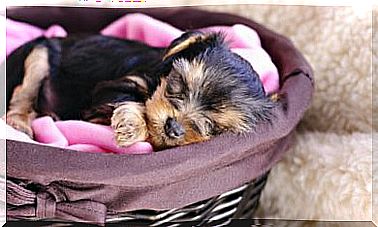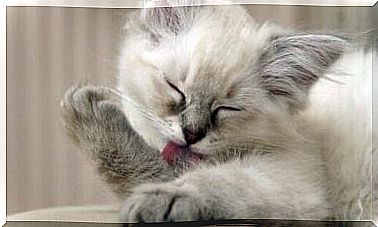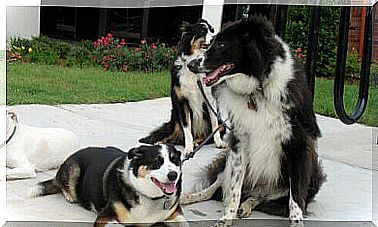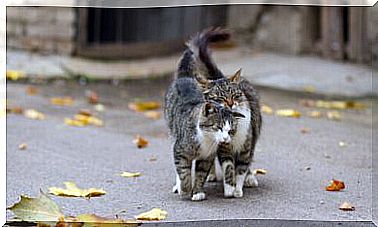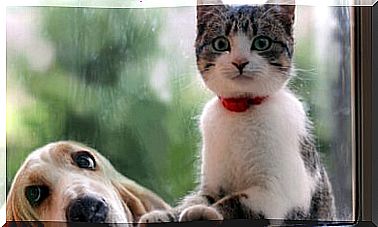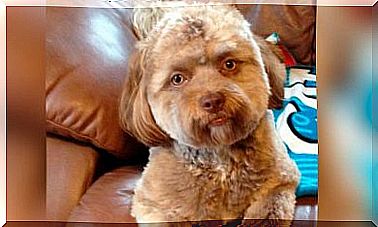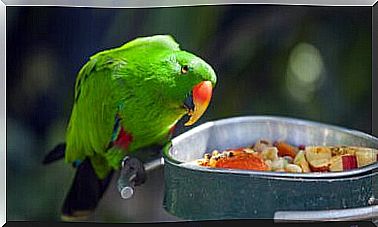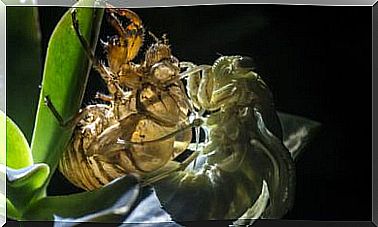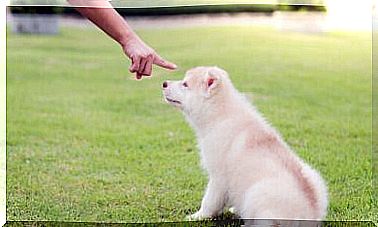Most Common Horse Behavior Problems
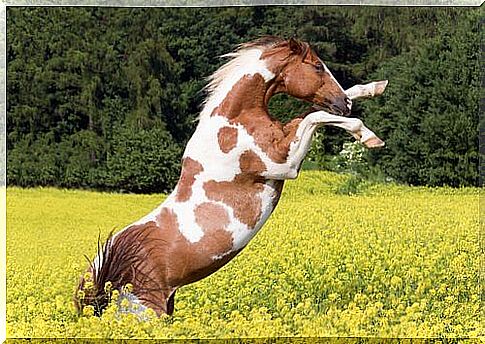
Horses in captivity can develop behaviors that are not considered normal.
Most are victims of compulsive actions, the product of hyperactivity disorders caused by confinement. The reason for a horse’s bad behavior is a change in their way of life or habitat.
There are three basic conditions that maintain a horse’s physical and emotional balance. These are feeding, interaction with other horses and freedom of movement.
A change in any or all of them is the cause of inappropriate behavior in the horse.
So, to minimize the effects of bad behavior, experts recommend different techniques.
From environmental improvements to new care, to pharmacological treatments. However, the application of any of them will depend on a previous diagnosis of the health of the horse.
horse misbehavior
Behavioral problems in the horse can be caused by internal or external factors. Among the former, pain and fear are the most common, and may have old or current causes.
In the second field, the external one, the elements to which a horse is submitted in confinement are considered.
Horses are normally kept in open areas freely. They are used to grazing, living in groups and running long distances freely.
Consequently, a variation of these routines, due to their domestication, is a cause of stress, a situation that the animal does not know how to deal with.
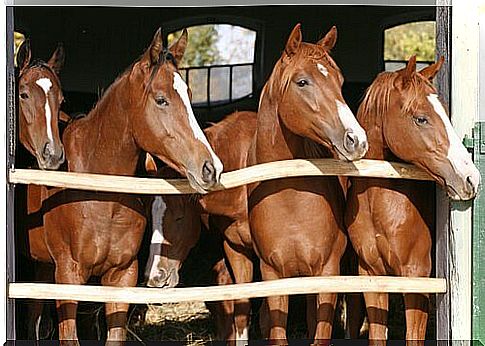
Generally, the most common problems resulting from bad behavior in the horse are stereotypies, eating disorders and aggressive reactions .
Stereotypies are repetitive and strange behaviors that the horse develops in its confinement (such as walking in circles).
This type of behavior increases the release of endorphins and helps to minimize your stress.
Causes of horse misbehavior
- Food. A free horse usually grazes for 18 hours, time it invests in searching for food and moving it around.
- In confinement, a horse is not free to maintain its routine or control its feed intake. This situation causes, in most cases, high levels of anxiety, stress and depression, including other illnesses.
- Pains or health problems. Pain is one of the main causes of a horse becoming aggressive. Aggression can be expressed towards other animals of the same species or even towards the tamer. This reaction is directly related to your state of mental health.
- Alteration in its habitat. A domesticated horse can spend up to 22 hours a day inside its stable, without enough space to run and isolated from other horses. This situation produces depression and anxiety in horses; especially in those wild animals or those used to large and savanna environments.
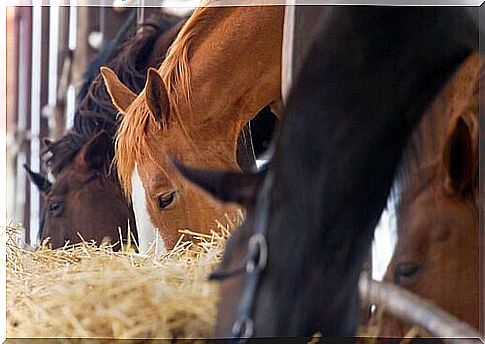
Most common behaviors
- Aerophagia or air intake. With the help of its incisors, the horse fixes its teeth on an inert target; he arches his neck and moves his head back, making a hoarse sound as he gulps in air. This behavior is associated with digestive problems as well as boredom.
- Neck and head bearing. The horse constantly moves its neck and head from side to side. It is a continuous movement, related to anxiety and anguish.
- Another variant of the previous behavior is the movement in circles inside the stable. The horse constantly spins within its space and can kick the door or the floor constantly.
- Eating wood (lignophagy). The horse bites the door and the wooden planks within reach. The main cause of this behavior is the lack of fiber in your diet. The biggest risk of this habit is that it chokes or has an internal laceration due to a splinter.
Tips to improve horse behavior
- Medical diagnostic. In an unusually behaving horse, a complete clinical diagnosis must be made; you also have to watch your psychological behavior.
- Changes in routine. A horse needs about 10 hours of free exercise and interaction with other horses.
- Control your diet. Typically, this captive animal eats large portions twice a day. Your food is rich in cereals and grains that can cause ulcers or intestinal acidosis. A high-fiber, low-sugar, high-caliber diet is recommended to encourage chewing.

